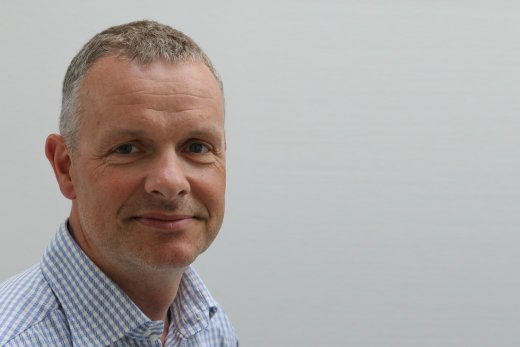13/08/2016
SensUs Interviews: Jesper Svenning Kristensen
Medtronic is a large medical technology company and one of our major sponsors. We spoke with Jesper Svenning Kristensen, Principal R&D Engineer, about the long-term developments in the field of biosensing and the role that SensUs can play.
Can you tell something about yourself? Who are you and what is your role in Medtronic?
"I have a background in physics and organic chemistry from the University of Aarhus. Since 1991 I have been working in industrial research on sensors and biosensors for medical applications, first as a research chemist at Radiometer Medical doing in vitro electrochemical and biochemical sensors for the ICU segment (ICU=Intensive Care Unit), later in a start-up (PreciSense) where we developed an optical sensor for continuous glucose monitoring for type one diabetes patients. This technology was acquired by Medtronic Diabetes in 2009. My current role in Medtronic is Principal R&D Engineer at the Bakken Research Center in Maastricht working on developing sensors for biochemical parameters that are useful in creating a deeper picture of the condition in heart failure patients."
How is your company involved in the field of biosensing?
"Medtronic believes in sensing in many of its business fields and acts accordingly. Naturally the most well-known and acknowledged product is the Medtronic Diabetes continuous glucose monitoring system, the Enlite sensor, that builds on the traditional electrochemical glucose oxidase based glucose sensor, but being very advanced using internal sensor diagnostics and algorithms allowing it to partially control the insulin dosage of the insulin pump."
How do you see the future for biochemical patient monitoring? Which innovations are needed and which long-term developments do you foresee?
"The ability to determine, interpret and act on information obtained from biochemical sensors will be key in future patient care. Whether it being in vitro or in vivo sensing will depend on the need of the patient and the caretakers, whatever creates most value. In order to provide meaningful information, sensor results have to be reliable and hence focus in sensor research should always include repeatability and robustness of the sensing system. Also the need for implantable sensors calls for solution to challenges like sterility, always a huge task to solve."
Which patient groups will benefit most from developments in biosensing? Can you give examples?
"I think all patients potentially can benefit from biosensors. Look to GPs office, small devices giving fast glucose, HbA1c, cholesterol or other analytical answers in the nick of time; some of those devices are based on biosensing, also disposable OTC pregnancy tests are biosensors (OTC=Over The Counter). To me the entire population benefits already but naturally the diabetic patient population is most likely the single patient group right now benefitting the most. However future sensing devices needs to address the frequency of answers needed in each condition targeted, in order to develop the most suitable device and sensing principle for that particular patient group. One of my key worries is that we sense without looking at the actual need and over-interpret answers and diagnose everybody. There is a risk that we drown ourselves in data overload, hence also data presentation needs to be considered."
What do you think of the SensUs concept and vision? How is SensUs of interest for Medtronic? What is your motivation for becoming a partner of SensUs?
"The SensUs contest is for me an opportunity to observe groups of students from diverse disciplines collectively solve a task. It is highly likely that the future of these (engineering) students will be working in project groups where compromise is the best solution. When working in the minefield between biology/physiology, chemistry, physics, math and computer science, no discipline can determine everything, hence compromises are needed, and good data and experience will choose where the compromise ends. In Medtronic we are always interested in identifying talent and the SensUs contest lets us get close to talents in five different countries in one go and this has been a great motivation for us."
Finally, do you have an advice and/or a question for the SensUs students and stakeholders?
"I hope the SensUs contest will continue and expand to more universities. To the students: maintain focus on the overall objective and be constructive when compromises are needed. The good project participant will always be able to see a way forward when problems are faced if the rest of the team is equally flexible. The compromises needed may impact the specifications of the end product, which in some cases may be perfectly OK. Remember that the perfect solution can be the worst enemy of the good solution."

Facebook
YouTube
LinkedIn
Instagram